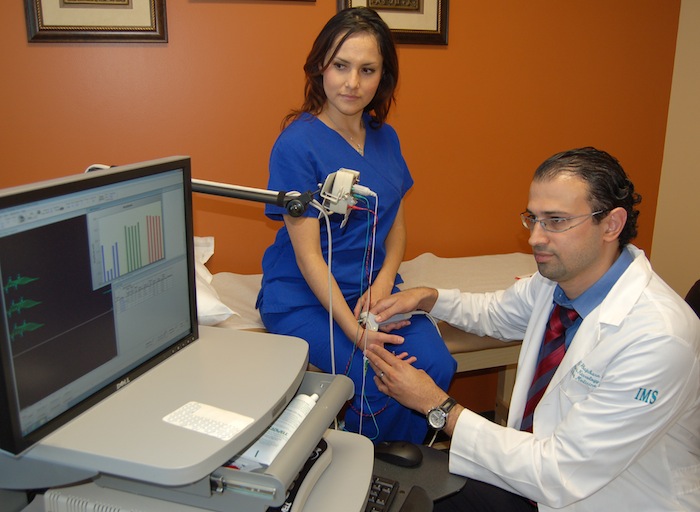Over the years, Kunisada’s wrong diagnosis caused him to be intubated and placed on a ventilator eight different times, Dr. Abujubara said. One of the quirky things about myasthenia gravis is that its symptoms, especially in earlier years of its existence, seem to come and go. Symptoms that can be severe can also resolve themselves for no apparent reason. However, while the course of disease is variable, it is usually progressive. That’s what ultimately brought Kunisada to the Emergency Department at John C. Lincoln North Mountain Hospital.
“My ability to breathe was bad, as always,” Kunisada said, “but then my speech got slurred and I couldn’t swallow. That meant I couldn’t eat. While I was in the hospital, Dr. Abujubara told me that my problems might be more than asthma or COPD. He suspected myasthenia gravis or Lou Gehrig’s disease.”
Lou Gehrig's Disease, amyotrophic lateral sclerosis (ALS), is a progressive neurodegenerative disease that affects nerve cells in the brain and the spinal cord. The progressive degeneration of the motor neurons in ALS eventually leads to their death. It is not curable. “When I saw him in the hospital I suspected myasthenia gravis, and I was right,” Dr. Abujubara said. “The fact that he needed to stay on the ventilator for many days many times in the past made me question the strength of his breathing muscles. His symptoms – breathing difficulties, swallowing problems and slurred speech – are all manifestations of myasthenia gravis.”

With the help of medical assistant Zulema Hernandez, John C. Lincoln neurologist Islam Abujubara, MD, demonstrates the medical equipment that he used to correctly diagnose Victor Kunisada’s disease, myasthenia gravis. Dr. Abujubara uses the electromyography (EMG) machine to perform a nerve conduction study that tests the ability of the patient’s nerves to electrically transmit messages from the brain to the muscles.
Still, just to be sure, in an effort to get the correct diagnosis for Kunisada’s condition Dr. Abujubara performed neurological testing and blood work looking for the abnormal antibodies. “After the tests were done, Dr. Abujubara came into my hospital room with a huge smile,” Kunisada said. “He said he had good news: I did NOT have Lou Gehrig’s disease.”
Myasthenia gravis was a much less serious problem, Dr. Abujubara said. Unlike ALS, it is treatable. He prescribed medication to suppress the Kunisada’s immune system, to stop his antibodies from attacking. He also prescribed another drug that facilitates transmission in the neuromuscular junction.
“After treatment, Mr. Kunisada got much better and was able to swallow, which meant we could remove his feeding tube,” Dr. Abujubara said. ."I promised Mr. Kunisada that he would be able to swallow again and this made him very happy."
Although Kunisada acknowledges the improvement in his health, he says he has a long way to go before he can return to his youthful activities of playing basketball or softball or bowling in a league.
He does, however, have the energy and stamina to hit the casinos or local poker parlors several times a week to play cards with friends. “I won a couple of hundred dollars yesterday at one of my favorite hangouts, Liz and Rob Ghezzi’s Poker Play in Glendale,” he said, “where they always make a serious effort to watch out for my health. Additionally, I can now swallow and eat. So I’d say things are going fairly well.”
“I think the most significant thing about Mr. Kunisada’s case is that it shows our ability at John C. Lincoln Hospitals to get the right diagnosis for our patients,” Dr. Abujubara said. "Paying attention to the patient’s story and carefully evaluating the medical diagnosis given to each patient to make sure we are not missing another treatable disease is very important and can be lifesaving.”
